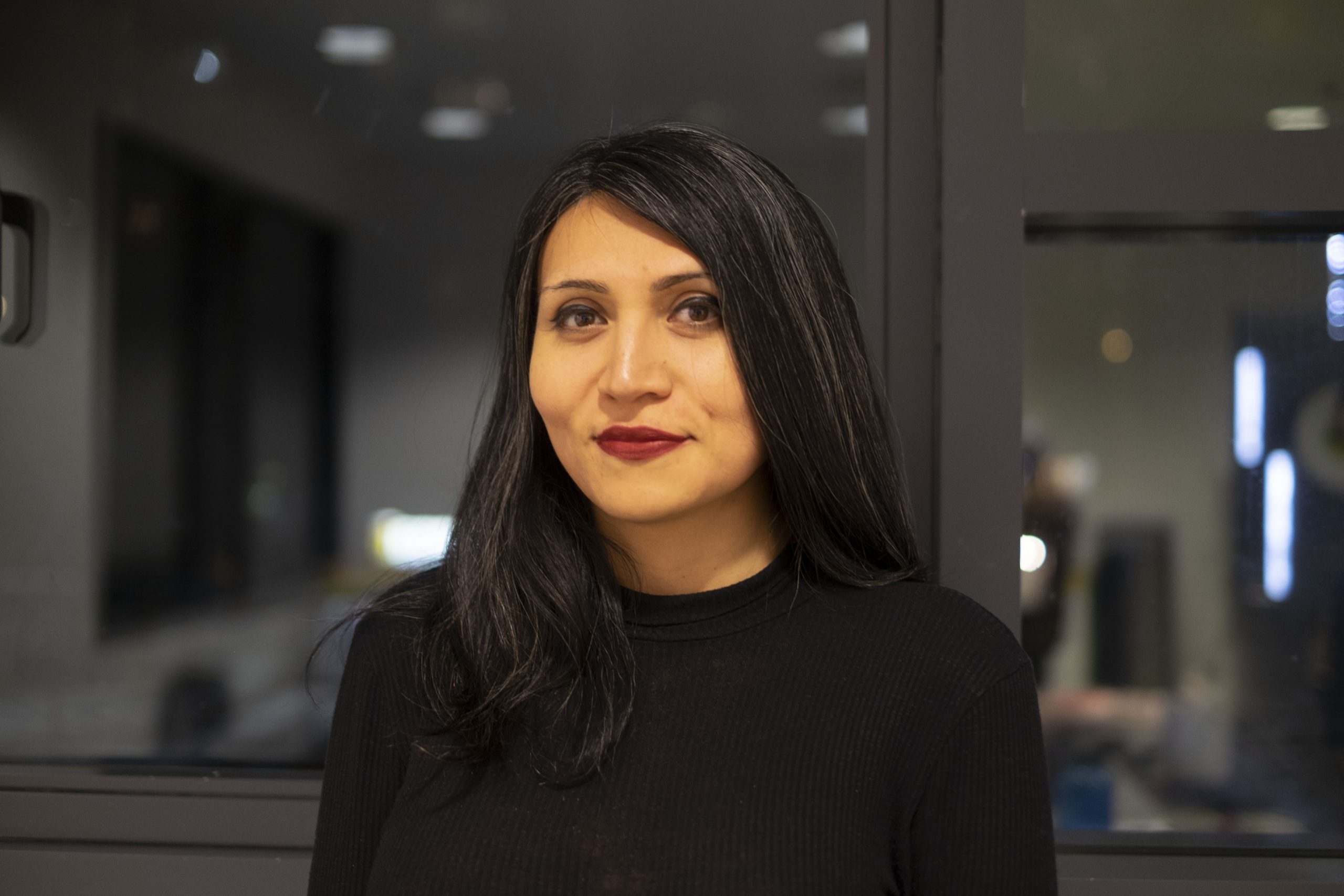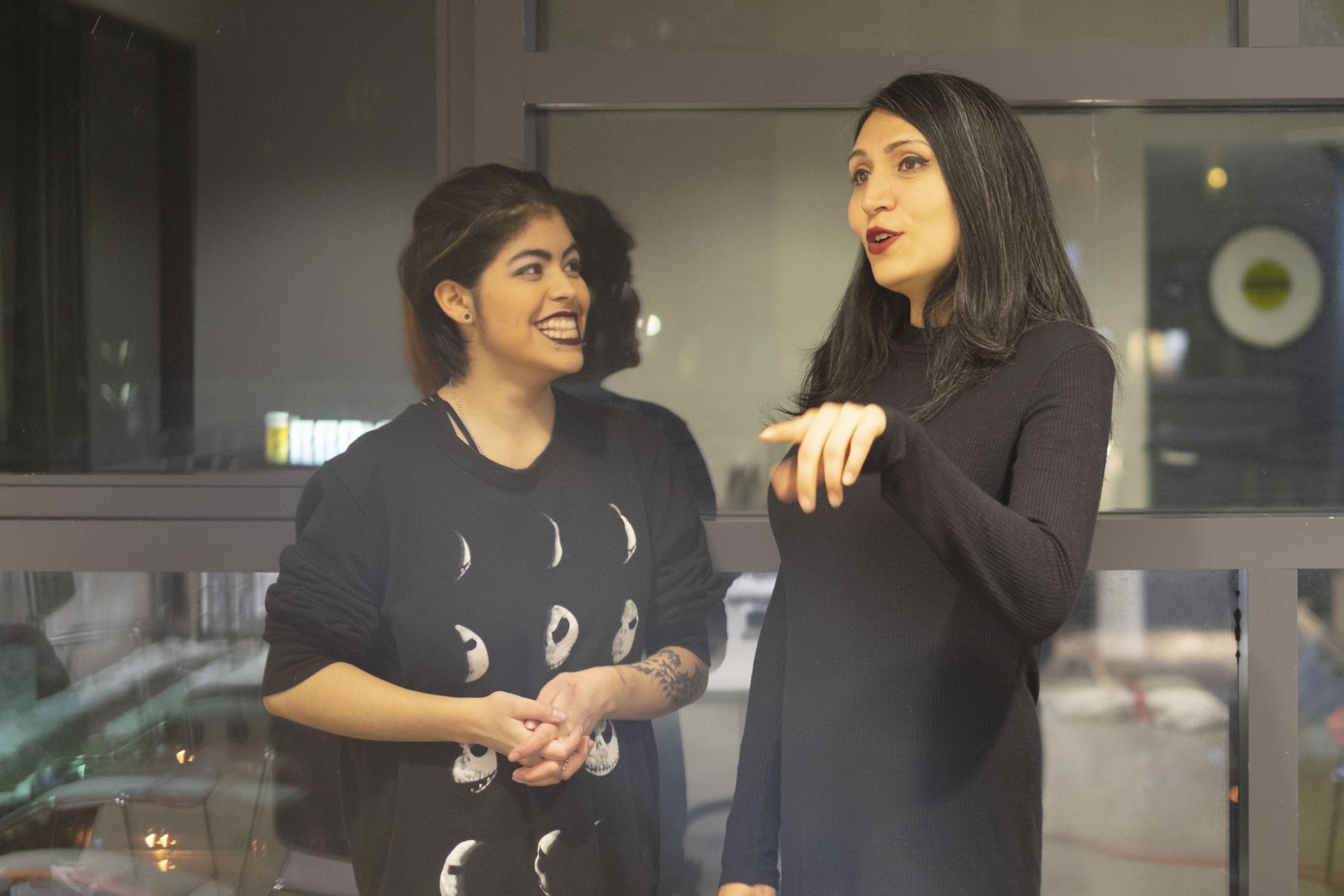Mentoring Trans and Non-binary Youth
December 29, 2019

An Interview with Delphi Araya – Coordinator, Trans Youth Mentorship Program
The 519’s Trans Youth Mentorship Program (TYMP) provides meaningful skills and training to trans, two-spirit, non-binary, and gender diverse youth to improve employability. Some of the training in the program includes skills related to anti-oppression, team-building skills, harm reduction, creative facilitation, public speaking, conflict resolution, event planning, and networking.
Delphi Araya is the Program Co-ordinator for TYMP and an Education and Training Specialist at The 519. Eleven years ago, she herself was a participant in a drop-in mentorship program for trans youth at The 519. She also volunteered for The 519 before eventually joining the team as a staff member a few years later.
Delphi offers some unique insights into the Trans Youth Mentorship Program.
How is this program different than any other youth mentorship program?
Mentorship for trans youth is different than the traditional youth mentorship model, as the barriers experienced by trans and non-binary youth are different. This program focuses on personal and professional development that builds on people’s existing lived experiences. TYMP is designed to be a model that is responsive to the needs of participants and involves providing holistic support.
Why is this program so important?
Programs like TYMP need to continue and grow because so many trans youth need this support, and there aren’t similar opportunities available. To navigate through the pervasive barriers to education, employment, and housing that our communities experience, we need programs that can support them so they are able to realize their gifts and succeed in their personal and professional lives.

What does the success of the program mean to you?
For me, the success of the program is seeing our alumni making progress in their professional lives and coming back to the program to deliver workshops to the current participants.
What is your vision for this program in the coming years?
I hope that this program expands each year and supports our participants to become youth leaders and agents of change. We need to have more trans leaders across various sectors so we have more role models and mentors for trans and non-binary youth. My dream is to witness our program participants smash systemic barriers to education and employment and support sustainable systemic change. I hope to see more such programs based on the ideals of collective care and wish for a world in which everyone has access to equitable opportunities to succeed.
Impact Stories
June 2025
One Among Us: a community for East-Asian and East-Asian Canadian trans and gender-diverse people
April 2025
Remembering Jake: The Volunteer Who Fostered Belonging
December 2024
Honouring Their Names, Honouring Their Stories
September 2024
Norie: Don't Hide Who You Are, Let's Be Proud!
Finding safe spaces for 2SLGBTQ+ youth at The 519’s Youth Action and Arts Space.
August 2024
Jaris Swidrovich: Lifting up unexpected perspectives on The 519 board
June 2024
Sush: Cooking with Salt, Pepper, and Love!
Volunteering with Abuelita Norma
May 2024
Jayan: Youth Activism Today and Tomorrow
From the Village: Connie Langille on the promise of The Village
November 2023
From the Village: Nik Redman reflects on Trans Fathers 2B
September 2023
From the Village: Toronto Bi+ Network's Tara Schorr on Bi+ Visibility Day
From the Village: Chanelle Gallant on the 23rd anniversary of the Pussy Palace raid.
July 2023
From The Village: Patrick Fahn, AIDS Memorial Architect
May 2023
December 2022
Mayumi: The More We Are Together, The Happier We’ll Be
Kirina: Transitioning Every Day, in Every Way
November 2022


